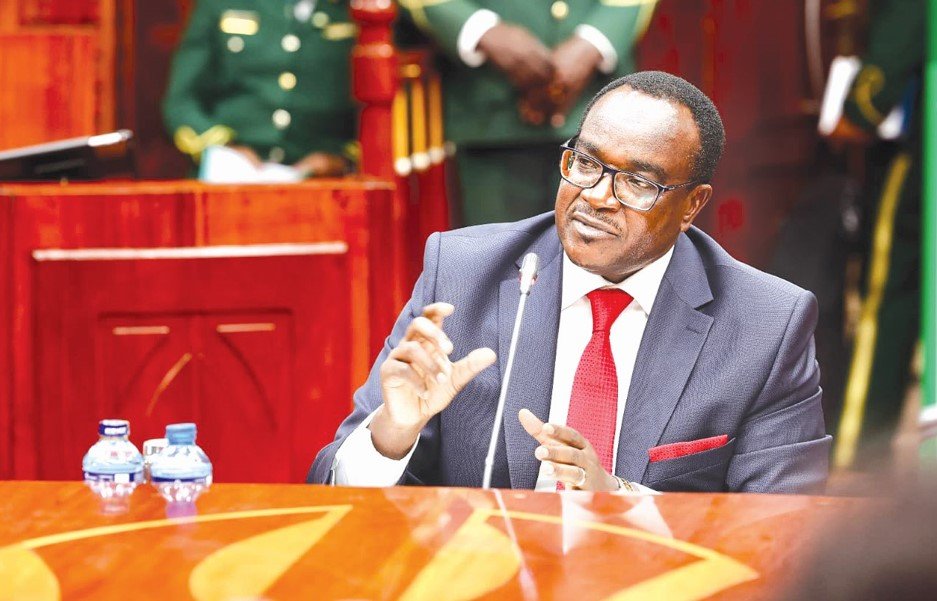Grade 9 transition faces array of issues
By Print Reporter, December 19, 2024Barely three weeks before schools reopen, Kenya is once again staring at a major educational crisis when the first cohort of Grade Nine students under the new Competency-Based Curriculum (CBC) are admitted.
Although President William Ruto’s administration is putting on a brave face, assuring Kenyans that all is well, teachers and educationists are questioning the country’s preparedness for the transition that they anticipate will be a major headache for both students and schools.
From inadequate classrooms and teacher shortages to ill-prepared teachers, lack of learning materials and confusion over the management of Junior Secondary Schools, educationists and teachers that we interviewed say the country is groping in the dark regarding Grade Nine.
Already, members of Parliament have raised the red flag over the government’s unpreparedness for junior schools as the pioneer class of CBC prepares to transition to Grade Nine in January 2025.
During an adjournment motion sponsored by Kathiani MP Robert Mbui, the lawmakers have questioned how the government expects to have a total of 32,469 new classrooms and labs within the remaining days in all the 26,000-plus primary schools to accommodate 1.5 million students expected to move to Grade Nine.
Pipe dream
The government had projected that each ward in the country is supposed to have five classrooms depending on student enrolment. Each classroom is supposed to accommodate not more than 50 students, a projection that now looks more like a pipe dream.
“This is an emergency, like Covid-19 in 2020. The government must spend billions of shillings to have our children in school next year. Otherwise, it is going to be a crisis of major proportions,” Mbui told People Daily yesterday.
President Ruto has in recent days assured Kenyans that his government had finalised plans for a seamless transition of Grade Nine students with the construction of 11,000 classrooms.
He also implored MPs to complement his government’s efforts by funding the construction of an additional 6,000 classrooms through the National Government Constituencies Development Fund (NGCDF) to ensure Grade Nine students have sufficient facilities when schools reopen in January.
“There will be a book for every subject for every learner. This will ensure a smooth and effective transition,” the President was quoted saying recently.
But despite the President’s plea for intervention from MPs, experts warn that the bureaucracy involved in the implementation of NGCDF projects may not help the building of the required classrooms within three weeks.
Kenya National Union of Teachers (KNUT) secretary general Collins Oyuu echoes the government’s sentiments, saying that “there is plenty of time for the remaining classes to be constructed”.
“Transitioning to Grade Nine is not optional but a must undertaking. We cannot stagnate our children in one class on grounds of inadequate infrastructure, and so we must move to the next level,” Oyuu told the People Daily by telephone.
He was optimistic that the government would address all the grey areas by January.
But experts view the President’s assurance as yet another empty promise to Kenyans, questioning how he expects the government to build an additional 19,000 classrooms within the next two weeks before schools reopen.
Improvisation plans
Reports indicate that some teachers plan to improvise and are already embarking on mechanisms for accommodating the large number of students anticipated to be admitted.
Students at some schools will have to be hosted under trees and others in makeshift classrooms, claims Jonathan Wesaya, an education and strategy consultant at Tathmini Consulting.
Wesaya also questioned teachers’ readiness for the new curriculum, highlighting concerns about the availability of qualified instructors for subjects such as health education.
“How many teachers are prepared to teach Grade Nine learners? Who is going to teach subjects such as health education, because our current curriculum in teachers’ training institutions is for the combination of two subjects?” he said.
Some 46,000 JSS teachers were recruited last year and were recently retained on permanent and pensionable terms. The Teachers Service Commission expects to use them for Grade Nine.
But Wesaya says they were not hired based on subject qualifications.
Most of them have arts and social sciences backgrounds but are being used to teach subjects that are not their specialty.
“Quite a number of these teachers are being forced to teach science subjects despite lacking the necessary qualifications, something that is very dangerous to the future of our learners,” Wesaya said.
Like many other educationists, Wesaya believes JSS teachers have not been prepared well to handle the Grade Nine students, an element he says is likely to undermine the quality of education.
Teacher preparation
Others holding similar views about teacher preparation include Akelo Misori, secretary general of the Kenya Union of Post Primary Education Teachers (KUPPET). The government, he says, has done little to prepare for the admission of Grade Nines.
Grade Nine is the stage where students are expected to choose their career paths, and Misori says the government has not identified and allocated schools the subjects they are expected to major in.
“Neither has the government released the criteria to be used to identify the schools to teach sciences, arts, social sciences or physical education. It is all confusion as we speak,” he said.
Educationists also raise the issue of management of JSS, where concerns have arisen that headteachers in primary schools where JSS is domiciled have been left to oversee teachers who are university graduates. Most primary headteachers are diploma holders from teacher-training colleges.
Suggestions are now being made that the government create another level of management of JSS teachers or place them under secondary schools.
“By creating another level of management for JSS teachers, the government would have also used the crisis to address the problem of stagnation in one grade for long,” says Vihiga KUPPET branch executive secretary Sabala Inyeni.
“Those teachers who have stagnated in one grade for long can be brought to oversee JSS through the creation of a new grading system.”
